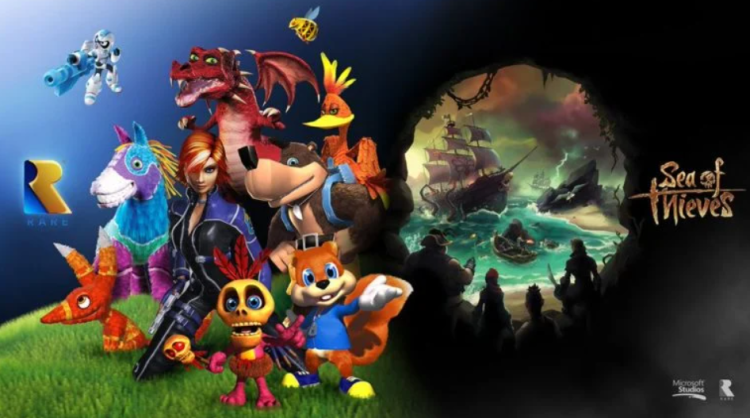Avalanche Closes Liverpool Studio as Microsoft Ends Everwild and Perfect Dark
Avalanche Studios Group has announced the closure of its Liverpool studio after the cancellation of Contraband, a cooperative open-world project that had been in development for several years. The decision also comes with layoffs at the company’s Stockholm and Malmo branches, with restructuring efforts aimed at reshaping the developer’s global workforce.
The studio issued a statement confirming that it had reviewed its current operations to secure long-term stability.
“In light of current challenges to our business and the industry, we have thoroughly reviewed how to best ensure Avalanche Studios Group’s long-term success,” the message read on the company’s website. “This review has led us to the difficult conclusion that we must make changes to our staging and locations. As a result, we are proposing to close our Liverpool studios, and to initiate a collective consultation process, as required by UK law. This will impact all Avalanchers in Liverpool. The changes will also impact our other studio locations in Malmo and Stockholm, where we will reduce our workforce and restructure the teams to address our games’ needs.”
Avalanche is best known for the Just Cause series, but Contraband had been one of its most ambitious projects to date, designed as a cooperative 1970s-inspired open-world title. First announced at E3 2021 with a cinematic trailer, the game remained absent from showcases in the years that followed. By August, development had been described as “on hold,” with Avalanche admitting that active work had stopped while the future of the project was reassessed.
The closure adds to a year marked by significant upheaval across the industry, particularly within Microsoft’s gaming division. Following large-scale layoffs, Microsoft confirmed the cancellation of Rare’s Everwild, The Initiative’s Perfect Dark reboot, and several unannounced projects. Matt Booty, head of Microsoft Studios, said the move was part of a broader restructuring strategy.
“We have made the decision to stop development of Perfect Dark and Everwild as well as wind down several unannounced projects across our portfolio,” Booty stated. “As part of this, we are closing one of our studios, The Initiative. These decisions, along with other changes across our teams, reflect a broader effort to adjust priorities and focus resources to set up our teams for greater success within a changing industry landscape. We did not make these choices lightly, as each project and team represents years of effort, imagination, and commitment.” — Matt Booty
Rare’s Everwild had been in development in some form for over a decade, but the project repeatedly faced creative challenges. Internal reboots and a lack of clear direction prevented significant progress, despite optimism from Xbox leadership earlier this year. Veteran Rare designer Gregg Mayles, who had worked on Donkey Kong Country, Banjo-Kazooie, and Sea of Thieves, is set to depart the company following the cancellation, alongside executive producer Louise O’Connor, another long-time team member.
The situation has highlighted Microsoft’s shifting priorities as it restructures its studios. Earlier this year, head of Xbox Phil Spencer described the layoffs as a way to “end or decrease work in certain areas of the business and follow Microsoft’s lead in removing layers of management to increase agility and effectiveness.” With around 9,100 employees reportedly affected across Microsoft’s wider workforce, gaming has not been immune to the company’s broader adjustments.

Founded in 1985, Rare remains one of the UK’s most historic game studios, having created iconic titles such as GoldenEye 007 and Banjo-Kazooie. Since Microsoft acquired the developer in 2002, it has produced a mix of original titles and service-based projects, with Sea of Thieves being its most successful release under the Xbox banner. The loss of Everwild marks a significant setback for the studio, one that was intended to showcase Rare’s creative ambitions after years of supporting Sea of Thieves.
Avalanche, meanwhile, faces an uncertain future following Contraband’s cancellation. The Swedish company had positioned the game as a new era for the studio, but with its closure in Liverpool and reductions in other branches, the developer’s focus will likely shift back to supporting existing franchises or pursuing smaller-scale projects.
With high-profile cancellations, studio closures, and talent departures, the latest moves represent some of the most dramatic cuts to major Western development teams in years. The restructuring across Avalanche and Microsoft signals a sharp recalibration in how large publishers are approaching their portfolios, cutting back on long-running projects in favor of streamlining production for a changing market.

Comments